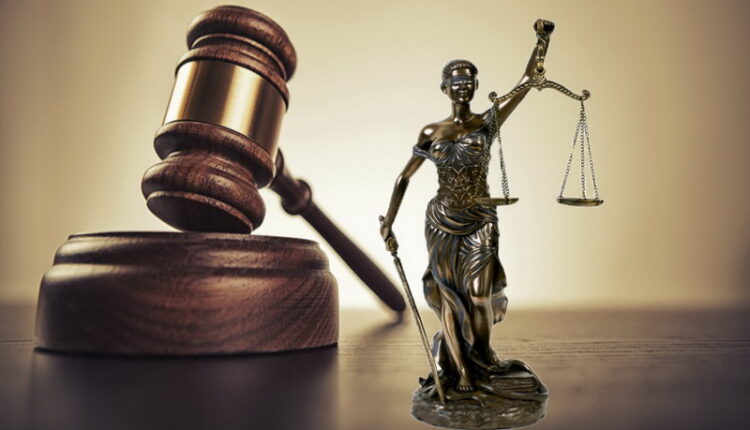RKUHP Reflects Pancasila Values
By: Aulia Hawa )*
bali talk.id| The Draft Criminal Code (RKUHP) is a draft law that was prepared with the aim of updating the Criminal Code to suit the development of social, national and state life. Of course the content of the law reflects the values of Pancasila which have been agreed upon as the basis of the state.
After all, Pancasila must be the basic norm in drafting laws and regulations. So that every regulation and legislation must be in accordance with and must not conflict with the values of Pancasila, including the RKUHP.
Of course, if the public finds articles that they feel are not in accordance with the values of Pancasila and democratic values, this can be discussed.
One form of reflection of Pancasila values in the RKUHP is the emergence of the concept of the principle of material legality in Article 2 of the RKUHP. Article 2 paragraph (1) of the RKUHP which states “The provisions as referred to in Article 1 paragraph (1) do not reduce the enactment of the law that lives in society which determines that a person deserves to be punished even though the act is not regulated by law”
The article is based on an understanding that the law is not limited to a written rule or law, but there are also unwritten laws. So that the existence of Article 2 of the RKUHP can provide space, especially for law enforcement officers, especially judges to be able to explore the laws that live in society in an effort to create justice.
If examined more deeply, Article 2 of the RKUHP departs from the condition of Indonesia which has cultural diversity in each region. Where there are several regions in Indonesia that still believe in the law that has existed since their ancestors even though it has not been codified in writing.
In Bali, for example, there is a custom or law where in matters of marriage it is carried out by taking the women away and then getting married (married) together. Such a thing by the local community is not a criminal act. However, if you look at national law or in the Criminal Code, the act is a criminal act.
Laws or habits that live in this community, of course, cannot be used as a basis by the panel of judges because the Criminal Code only regulates the principle of formal legality as stated in Article 1 of the Criminal Code. Where article 1 paragraph (1) of the Criminal Code reads that “No action can be punished, except for the strength of the criminal rules in the legislation that existed before the act was committed. Therefore, the article can be said that in criminal law in Indonesia, every act can be punished if there is a law that regulates and fulfills the elements of the law.
Meanwhile, the Coordinating Minister for Political, Legal and Security Affairs, Mahfud MD, hopes that the bill can be enacted soon.
Moreover, it has been 59 years since the RKUHP was discussed through successive teams and received legal political directions from seven presidents. So that this design can be said to be ready to be implemented.
Previously, the Pancasila Ideology Development Agency (BPIP) held a clustered group discussion (DKT) with the theme ‘Reflection of Pancasila Values in the RKUHP’. The event was attended by the Deputy Minister of Law and Human Rights, Prof. Dr. Edward Omar Sharif Hiariej, SH, M. Hum as a resource person, he considered that drafting the Criminal Code (KUHP) was not easy.
Edward considered that one of the difficulties in drafting the Criminal Code is the background of the Indonesian people which often triggers the pros and cons. He said that the contents of the Criminal Code throughout the world are the same, but what distinguishes one country from another lies in three issues, namely political crimes, crimes of decency and humiliation. He also said, when talking about democracy, Indonesia is not a liberal democracy or a guided democracy, but Pancasila democracy.
Freedom of expression and freedom of opinion are of course an important part of a democracy which must also be accompanied by humanitarian principles.
On this occasion, he also hoped that BPIP would always provide education to the public regarding the values of Pancasila contained in the Draft Criminal Code.
On a different occasion, Antonius Benny Susetyo as Special Staff to the Chairman of the BPIP Steering Committee, urged that the RKUHP be ratified immediately. The reason is that the existing Criminal Code is no longer relevant to the values of Pancasila.
In the current Criminal Code, there is also an imbalance of domination, where this legal product is used by the colonials to oppress the small people. This of course must be changed, because it is not in accordance with the values of Pancasila.
Pancasila as the basis of the state is accommodated in the RKUHP in article 190 paragraph 1 which can be the force of law in taking action against anyone who intends to replace and interfere with Pancasila.
Therefore, it is fitting that the RKUHP be ratified so that Indonesia is not guided by laws which are colonial products where currently the law is no longer appropriate.
)* The author is a contributor to the Press Circle and Cikini Students
